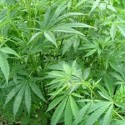21 May Age of First Pot Smoking Does Matter
MedicalResearch.com Interview with:
 Natalie Castellanos Ryan, PhD
Natalie Castellanos Ryan, PhD
École de Psychoéducation
Université de Montréal
Outremont Canada
MedicalResearch.com: What is the background for this study?
Response: Our study followed a group of boys living in low socioeconomic neighbourhoods in Montreal (N=1030) from early childhood to 28 years of age to investigate:
1) whether the age at which one starts to use cannabis across adolescence is associated with the risk of developing drug abuse by early adulthood, when one controls for arrange of known risk factors for cannabis use and problems assessed across development (risk factors in childhood, adolescence and early adulthood); and
2) the developmental pathways from early risk factors to drug abuse problems.
To examine these associations, the study collected self-reported cannabis use information from these boys annually from ages 13 to 17 years and drug abuse symptoms at 28 years, as well as teacher, parent and child reported information on a number of environmental (family and friend) and child characteristics (e.g., impulsivity, delinquency, school performance) across childhood and adolescence. Alcohol and other drug use was also assessed across adolescence and early adulthood.
MedicalResearch.com: What are the main findings?
Response: The main finding of the study was that age of initiation of cannabis use does matter: the odds of developing any drug abuse symptoms by 28 years were reduced by 31% for each year one delayed the initiation of cannabis use (OR=0.69). However, how frequent one uses cannabis, alcohol and other drugs explained part of the association between cannabis age of onset and later drug abuse symptoms on. Still, even when taking that frequency of use into account, adolescents who started using cannabis before 15 years were at a higher risk of developing drug abuse symptoms by the age of 28 years. Finally, significant indirect effects were found from early adolescent delinquency and affiliation with deviant friends to drug abuse symptoms at 28 years through cannabis use age of onset and substance use frequency at 17 years, suggesting that early onset cannabis use is just one indicator of more complex developmental pathways to adult drug use problems characterised by impulse-control, delinquency and affiliation with deviant peers already detectable in pre-adolescence.
MedicalResearch.com: What should readers take away from your report?
Response: The results suggest initiating cannabis use early could increase the risk of developing drug use problems later in life. Thus, prevention programs should aim at delaying cannabis use onset to prevent or reduce drug abuse in adulthood. That said, findings suggest that early onset cannabis use is just one indicator of more complex developmental pathways to adult drug use problems, so prevention programs should target early risk factors such as delinquency and/or affiliation with deviant friends in childhood or early adolescence, which could indirectly reduce substance abuse in adulthood without addressing substance use specifically.
MedicalResearch.com: What recommendations do you have for future research as a result of this work?
Response: Future studies should examine early onset cannabis use and drug use problems taking into account that early onset cannabis use seems to be just one indicator of more complex developmental pathways to adult drug use problems, and thus, include early risk factors and potential mediators in their analyses (especially those not considered in our study, e.g., childhood trauma, personality traits such as negative affect or hopelessness, and quantity/potency of cannabis use), in order to help clarify and quantity the real risk of initiating cannabis use early. We also don’t really know much about what individual and environmental factors place a young person who initiates cannabis use during adolescence at higher risk of developing later substance use problems. Thus, in order to understand why some adolescents who start using cannabis early develop problems while others do not, more studies examining the moderators of the link between cannabis use age of onset and future problems are needed.
No disclosures
Citation:
Charlie Rioux, Natalie Castellanos-Ryan, Sophie Parent, Frank Vitaro, Richard Ernest Tremblay, Jean Richard Séguin. Age of Cannabis Use Onset and Adult Drug Abuse Symptoms: A Prospective Study of Common Risk Factors and Indirect Effects. The Canadian Journal of Psychiatry, 2018; 070674371876028 DOI: 10.1177/0706743718760289
[wysija_form id=”3″]
The information on MedicalResearch.com is provided for educational purposes only, and is in no way intended to diagnose, cure, or treat any medical or other condition. Always seek the advice of your physician or other qualified health and ask your doctor any questions you may have regarding a medical condition. In addition to all other limitations and disclaimers in this agreement, service provider and its third party providers disclaim any liability or loss in connection with the content provided on this website.
Last Updated on May 21, 2018 by Marie Benz MD FAAD
